[11 min read]
Benefits of solo roleplaying
I consider myself lucky - I run or play in three different groups - one in-person, and two online. So in any given week, I am getting one or two group tabletop roleplaying game (TTRPG) sessions with varied experiences. But even with this regularity, making progress through campaigns or trying out new systems is slow going. And I have so much content that I want to dive into!
Enter solo roleplaying. What started as a way to try out D&D 5E adventures before running them (you can see some of my solo adventures here) has become a key area of focus moving forward. And this is for two main reasons:
- It is a low stakes way of getting experience with new content or systems before running them live with a group
- I get to play adventures that I am interested in without having to defeat the scheduling monster that comes when organising a group
Key choices before playing
But if getting into TTRPGs is already a daunting process, then embarking upon the quest to do it solo could be even more challenging - most games are not built with this in mind (although newer ones like The Walking Dead RPG from
Free League have solo rules built right in). And working with only your own imagination takes some getting used to - it is easy to get blocked, wondering what to do next. That is why prepping your approach and leveraging some excellent tools out there will really enhance your experience.
Some key decisions for you to make ahead of time are:
Adventure type
Do you have a pre-written adventure that you're dying to play through and don't have a group to run it for? Or do you want the dice to take your imagination to places you couldn't conceive of? These are two very different styles of solo play:
Emergent narrative starts with no idea, or maybe just a kernel of one, and lets fate take the driving seat by rolling dice against a series of random tables. In this way, you as player and Game Master (GM), are always surprised. But you have to be able to run with small bits of abstract information coming from these tables and turn them into a coherent story, which could take some practice.
Pre-written adventures might seem more approachable but they come with a different challenge - how do you try and keep the element of surprise when you naturally need to read ahead to stay within the written guardrails? Read the next two decisions to help navigate this challenge.
Approach to reading ahead
How much surprise, and when, do you want as a player, versus running it like a GM with full knowledge?
A full read upfront is advocated by some sites and videos on solo roleplaying, but I myself have never tried it. I plan to use this approach in an upcoming solo adventure, but the core premise is that the main surprise comes when you first read it, with smaller ones along the way as you navigate through with your character(s). This method has the benefit of keeping you on track and with limited narrative dissonance, and likely feels more like you are the GM, simulating party play.
Skimming ahead is a method I first learned in DM Yourself, an excellent resource for running D&D 5E pre-written modules. I leveraged this approach when I ran my first D&D 5E solo adventure in The Lost Mine of Phandelver. It involves limited and deliberate skim reading of the source material to help set the scene, then only doing a full read after making a choice on behalf of your character (see the next section). You need to be ok with accidentally reading too much and potentially 'spoiling' some surprises, but I find with a bit of practice, this is a satisfying way to feel more like a player in the adventure.
Question resolution
How do you resolve the inevitable questions players would ask of a GM during the scenario, when you are acting as both?
Declaring ahead is necessary when using pre-written adventures since the content can answer most questions, but that knowledge should be kept from the player so as not to influence their choices. One way to be able to roleplay the character(s) as if they didn't have that knowledge is through declaring actions ahead of time when a choice is apparent, or using default behaviours if a situation comes up where you are not given a choice but need to know how they would react. This is the approach introduced in DM Yourself.
Oracles are the cornerstone of question resolution in solo roleplaying. The one I use and potentially the most well known is the Mythic GM Emulator, and I recently picked up the excellent
Second Edition. Essentially it provides a suite of random tables and tools to emulate a GM, and is a critical part of crafting an emergent narrative, but also useful as a arbiter in pre-written adventures. For the latter, you could use the Oracle to determine if a character would know the information that you as a GM have from pre-reading, if it is not clear whether they would. Note that you can and will frequently alter the odds of a 'yes' answer in Mythic based on your judgement of the situation, making it possible to rig the system. But you're only hurting yourself right? And no one can tell you what is 'right' in solo roleplaying - you make the rules!
Party size
Do you want to be the classic lone wolf solo protagonist, have a trusty side-kick, or simulate the interplay of a whole party of adventurers in your solo game?
The Lone Protagonist is both a practical but also aptly thematic way to solo roleplay. Practical in the sense that it is easier to be in the mind of one character than several, and there are much fewer things to juggle given you are already managing a lot acting as both player and GM. Most solo rulesets provide tips on how to beef up the strength of your character given the life of a lone wolf is a very dangerous one. DM Yourself also adds Plot Armour, a mechanic where you can rewrite the story a limited number of times if you don't like the outcome. This book also advocates for a sidekick, a potentially less fleshed out character that is simple to run but can help keep your main character out of danger.
Running a whole party is a challenging prospect, but might be the right choice if (a) you are experienced in the ruleset, and (b) you want to simulate the full experience, especially if you plan to run this for a group later and want to get a great feel the content to tailor it to your players. I did this with the Lost Mine of Phandelver before running it with my friends as my first GMing after decades of not running anything. Keeping track of everything is a true feat, which is why it might be easier using a Virtual Tabletop (VTT) to keep track of everything, see below.
Tabletop style
Do you want to cozy up to a set of books, dice and a notebook for a completely off-line experience? Or do you want the convenience of digital tools to help streamline the play experience?
Physical play satisfies that nostalgia that some of us old-timers have for the tactile nature of books and dice (and maybe miniatures). It also allows for complete disconnection from screens which is advocated by many for better sleep and wellness in general. My experience with it so far shows that cozy feeling comes at significant cost:
- Speed of looking things up is slower than online
- My handwriting is terrible, making reading back through my notes a chore
- It is difficult to be surprised since it is harder to censor text or maps
Virtual tabletops can ameliorate some of the downsides listed above, potentially at the upfront cost of learning and setting up these digital tools. I use a mix of
D&D Beyond for official 5E content,
Foundry VTT for all other game systems, and Google Docs and
this blog for chronicling my adventures.
To address the issue of story or map spoilers, I have a couple of tricks I use that might be helpful to others:
- Limit the size of the browser window when skim reading adventure text
- Load a map into the VTT, then immediately fully obscure by drawing a black rectangle
- Then erase the map as your characters explore, peeling it back a little at a time
Lastly, I am much better at typing than handwriting, so chronicling the adventure digitally is simply superior for clarity and efficiency of referring to my notes later. I hope to one day read back through all of these and I just can't see me doing it with a bunch of scrawl on notebooks!
Prospective solo adventures
Having thought through the different options we have for solo play, let's dive into what I am excited about trying, varying the approach to tailor the experience and learn more about solo roleplaying and the systems themselves. I probably won't get to all of these, but I have committed to the number one on the list below, and have played through the first scenario. Spoilers - it was a ton of fun and very true to the theme!
Alien RPG
For a cinematic, solo horror experience, using a full party of pre-generated characters, without any form of technology. Old school pen & paper with physical books! This will be my first Year Zero Engine game from Free League and I am using Mythic 2.0 to help out with question resolution.
I've already played through Hope's Last Day, which is a small scenario in the core rule book. I plan to run Chariot of the Gods, which is a longer scenario from the starter set.
The Walking Dead
I backed the Kickstarter and will be opening up the physical package on Christmas day (thanks Santa!). But I plan to play this one using Foundry VTT since it already has the adventures from the core rule book and starter set fully implemented in the system. It will be interesting to see how this compares to Alien RPG, given they both modify the Year Zero Engine. I plan to use the solo rules built right into The Walking Dead RPG and likely as a lone protagonist.
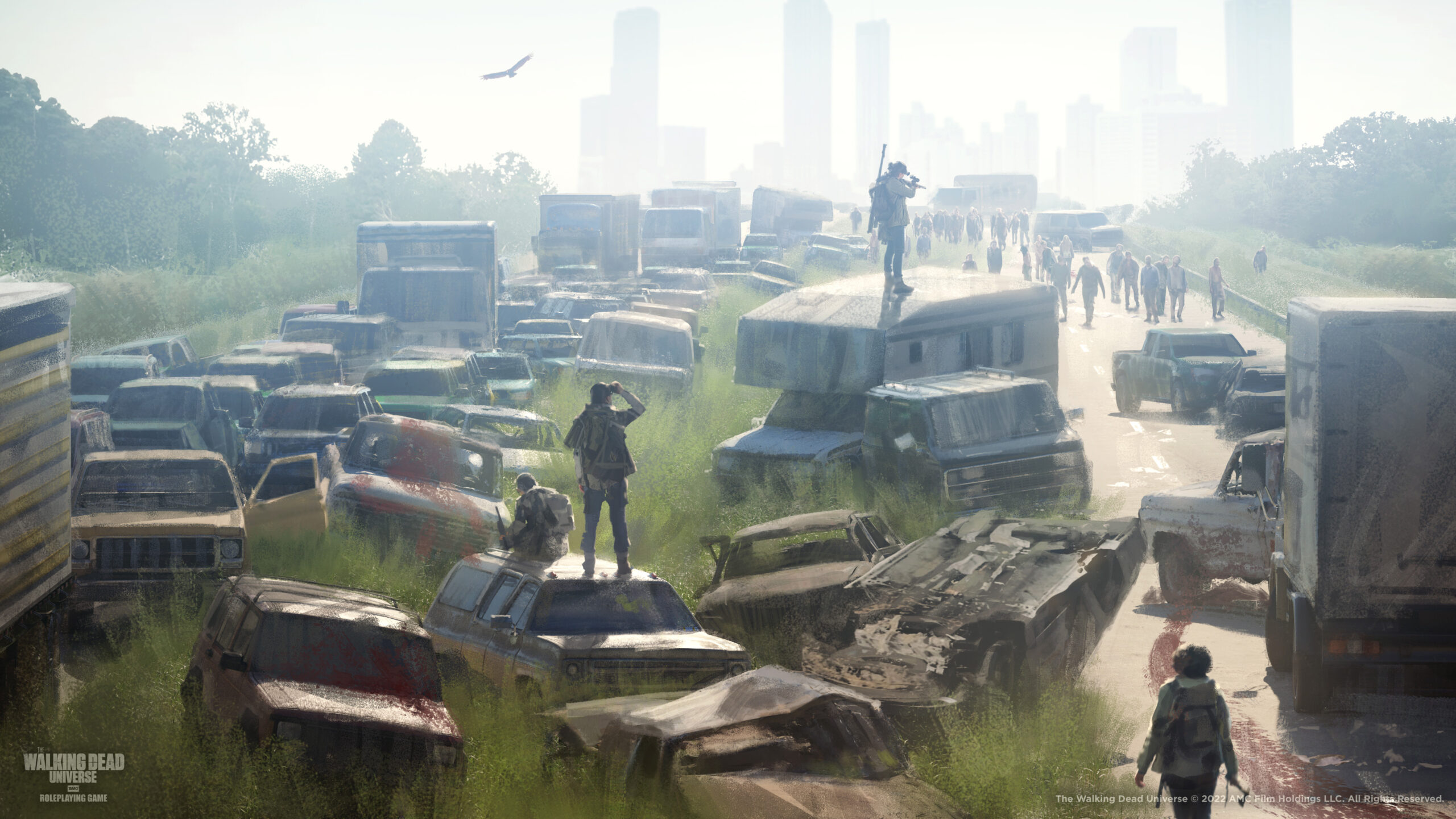 |
| The Walking Dead Universe (c) 2022 AMC Film Holdings LLC |
D&D 5E
All D&D 5E solo adventures I have run to date have been pre-written. I'd like to shake things up and move to more emergent gameplay using Mythic 2.0 for question resolution, and the The Deck of Many Things (a new official supplement including a swathe of fortunetelling cards) for adventure generation.
I am thinking one protagonist plus a sidekick in the new Planescape setting, with D&D Beyond for the character sheets and battle maps but using the physical cards and books from The Deck of Many things.
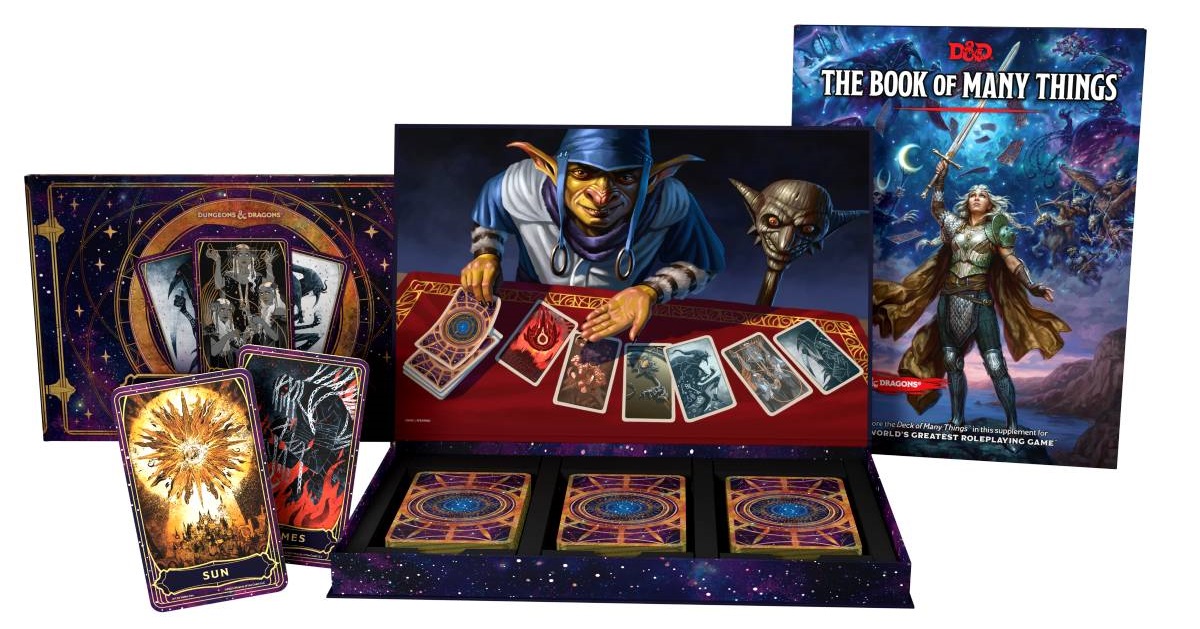 |
| Image by Wizards of the Coast |
Forbidden Lands
I've always liked the thought of a real open-ended hex crawl, with a more simulation-based style of play that makes scarce resources a key part of the tension. Enter Forbidden Lands, an award-winning TTRPG from Free League again using the Year Zero Engine.
I'll be unwrapping the physical boxed set with its beautiful map on Christmas day (gee, Santa really knows my tastes!), so plan to try and play this physically, with a lone wolf character to keep tension high. I have the official solo rules from Free League to help me out here.
Shadow of a Demon Lord
I dream of running a grim dark D&D 5E campaign in a homebrewed world that would blend elements of Dark Souls, Drakkenheim, the dark domains of Ravenloft, and other bleak, hopeless settings.
The Shadow of a Demon Lord TTRPG is the tone and lethality I'd be going for, so I'd love to learn the system, and try to adapt to 5E ahead of my own campaign starting. To do that, I'd need to simulate a party, and I'd probably use Foundry VTT to manage it all.
Ironsworn
Emergent storytelling became a 'thing' for me after watching Me, Myself and Die's excellent
second season using the Ironsworn system. Ironsworn is one of the earliest modern roleplaying games built from the ground up with the solo roleplayer in mind, and the host, Trevor, uses the dice and the oracle system to create something really impromptu and excellent viewing.
I'd like to really test my own imagination, with a narrative-heavy focus and purely random rolls guiding a solo protagonist through a unique story set in a Nordic-inspired setting.
The One Ring
I've already started a One Ring solo campaign with Luindîs, Ranger of the North, and her recently acquired companion, Mablin, Elven Scholar of Lindon. You can see my notes on my
Adventures page. I am waiting on the Moria expansion for The One Ring to come out in Spring 2024 before jumping back into a world I adore - Middle Earth.
The One Ring was one of my first forays into solo roleplaying, starting off with pen & paper but quickly moving to PDF and Google Docs to chronicle the adventure. I really like the custom dice from the starter set, so this campaign is a bit of a physical / digital hybrid, using the official solo rules from Free League themselves guided by its oracle tables.
 |
| Eriador, the setting for The One Ring RPG from Free League |
What's next?
Right now I am continuing my way through another D&D 5E pre-written adventure, Phandelver and Below: The Shattered Obelisk, but also making progress in my Alien RPG mini-campaign. I think The Walking Dead will probably be next on the list, and hopefully I'll get to start during my holiday break.
Happy Holidays if you're also celebrating now, and should you get some time off, why not take some of the tips above and pluck up the courage to start some solo roleplaying?

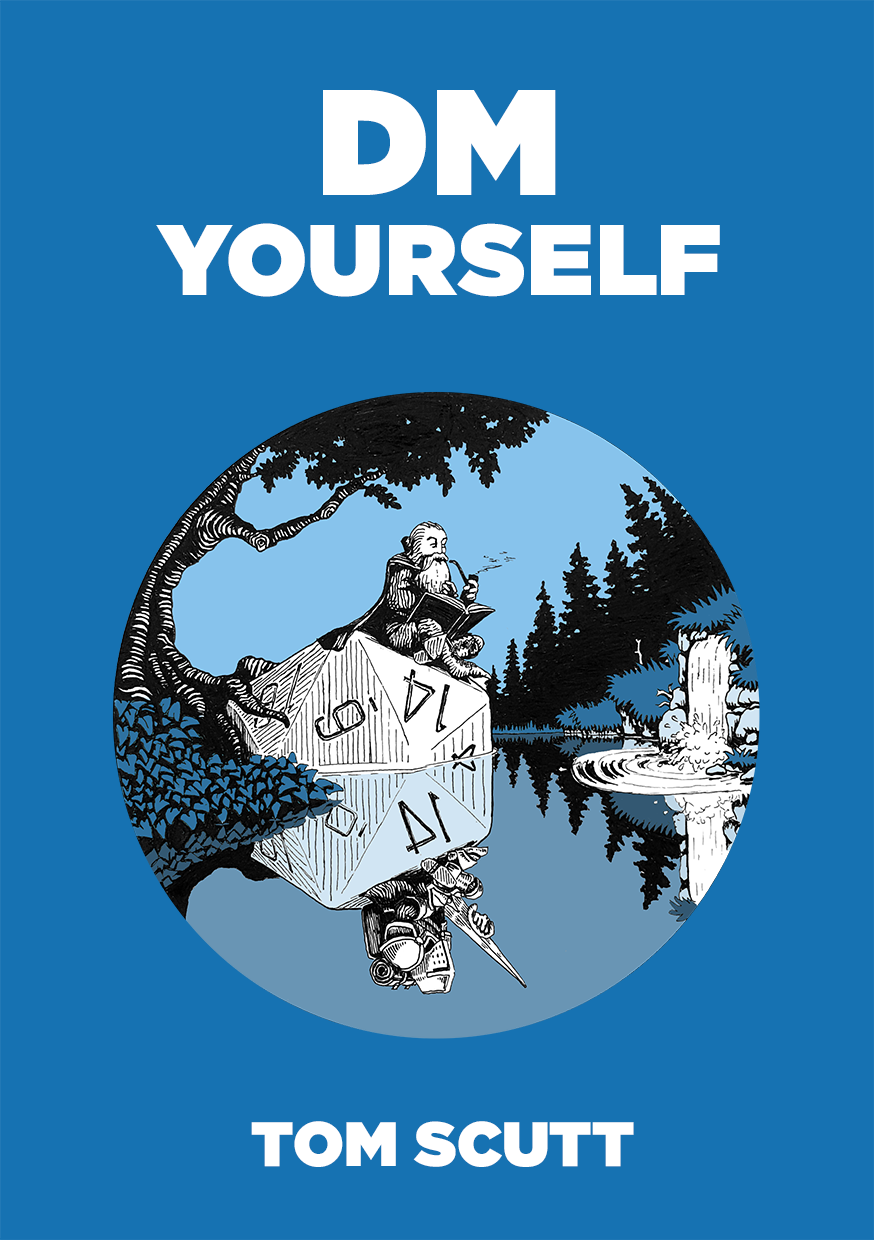
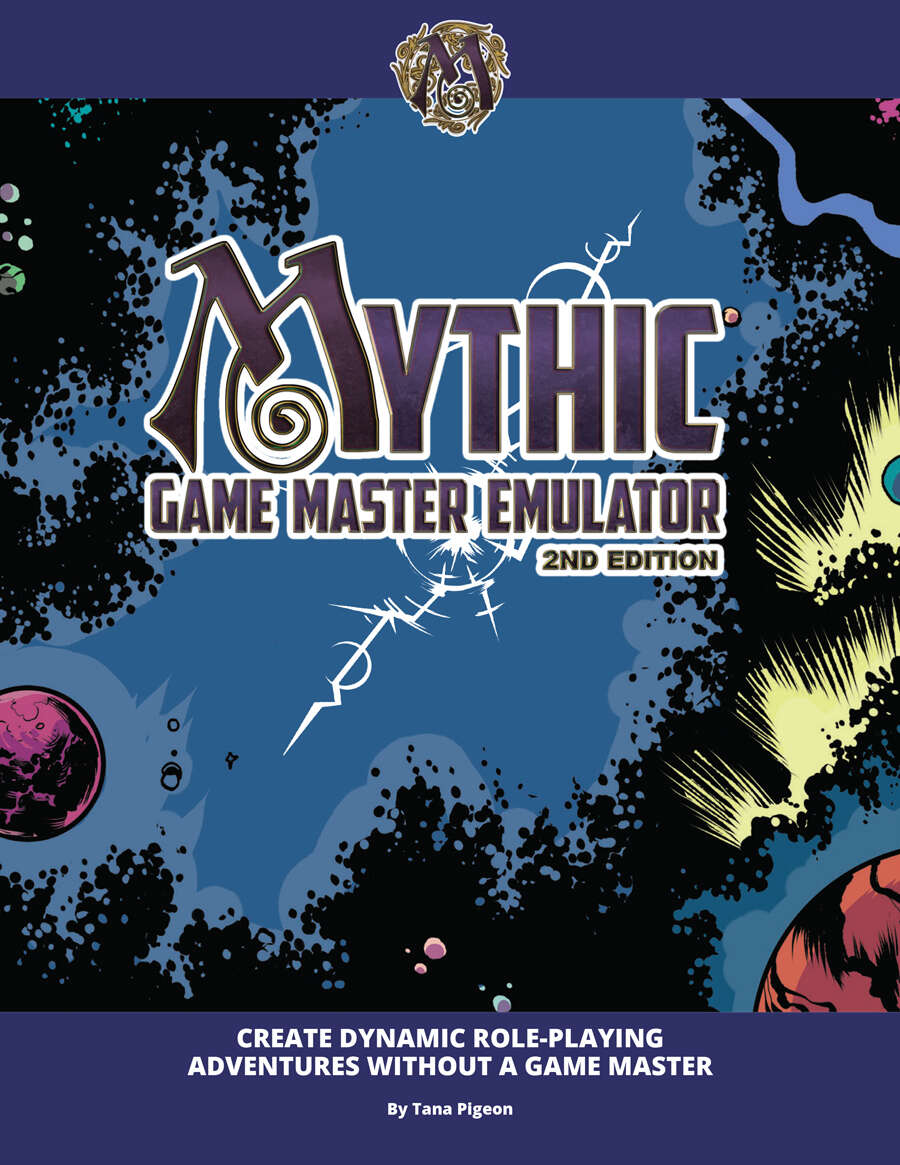

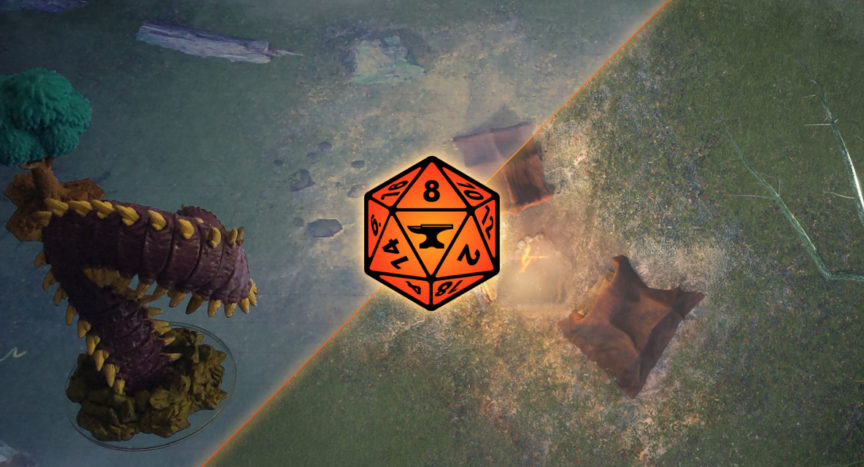







Comments
Post a Comment